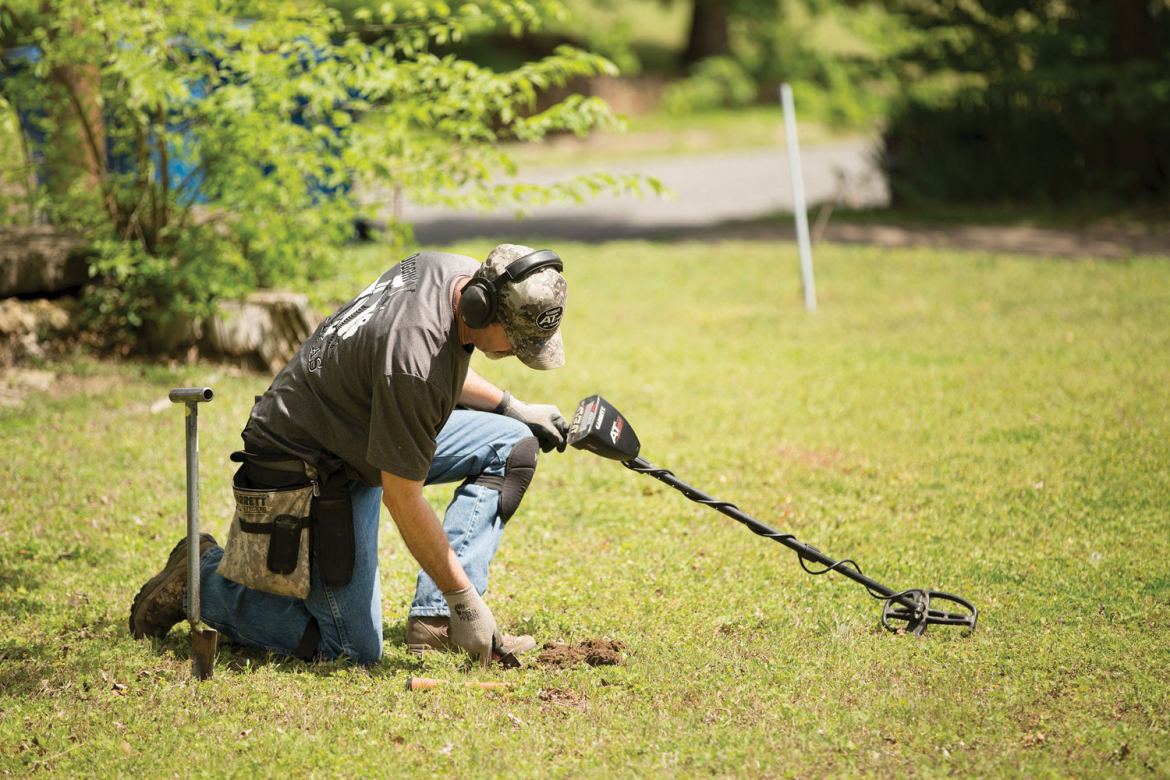Have you ever thought about what lies hidden beneath the ground you walk on? Metal detecting is a popular hobby that gives you the chance to uncover these hidden treasures. It's not just an outdoor activity; it's an adventure that promises the thrill of discovery. Whether you're a beginner or an experienced treasure hunter, the world of metal detecting is endless.
Metal detecting is a popular activity due to its simplicity and the excitement of discovering something valuable. You might find old coins, an expensive gold ring, or even artifacts from many years ago. It's a treasure hunt in your own backyard, local park, or favorite beach.
Where you search with your metal detector greatly influences what you find. Different places have different kinds of treasures. Therefore, selecting the best places to use your metal detector depends on what you're looking to find. Seeking gold coins or historical artifacts? Old homesteads and public lands could be your best bet. Want to find jewelry or unique valuables? Beaches and public city parks could be ideal.
But remember, with metal detecting comes responsibility. You must respect private property, obtain necessary permissions, and be aware of local laws that might impact your experience. Responsible practices ensure that metal detecting remains a fun activity for everyone.
Metal Detecting 101: More Than Just a Hobby
Metal detecting is much more than just a pastime. Every beep of the detector leads to a new story, a piece of history, or a unique treasure. This hobby invites you to become an explorer in your own world. It's a hobby that teaches patience, persistence, and the excitement of finding something great.
Beginning your journey with your metal detector starts with having the right equipment. For beginners, look for a user-friendly detector that is adaptable to different terrains and of course, is within your budget. Don't forget essential accessories like a digging tool and a secure bag to carry your finds.
But metal detecting is more than just having the right gear. It's about understanding how to use the equipment. Learning how to interpret the signals from your detector is key. Is that a false alarm, or have you stumbled upon a hidden coin? Practice is one of the most important parts of successful metal detecting, making your searches more productive and enjoyable.
Top Spots for Hobbyists
Once you're geared up for the adventure with your metal detector, the next step is choosing where to start. The world is full of hidden treasures, and some of the best places to discover them might be closer than you think.
Beaches
Beaches are jackpots for metal detecting. With the constant flow of people, they are a favorite place for finding lost jewelry, coins, and occasionally, historical artifacts washed ashore. Low tide is often the best time for a beach hunt because it exposes areas where items are more likely to be found. Remember to take note of any regulations that are specific to the beach.
Public Parks and Backyards
Public parks and even your backyard can be rich with valuables. Over the years, these places accumulate a variety of lost items, from lost jewelry and silver coins to relics of the past. Searching around picnic areas, playgrounds, and walking trails is great for beginners to practice and hone their skills. Always make sure you have permission and follow regulations, especially when digging in public spaces. Take care to leave the area you dig in the same or better condition than you found it. Remove all trash you find and properly cover every small hole you dig.
Campgrounds and Sports Fields
Areas like campgrounds and soccer or football fields often have interesting finds. With the high volume of people who visit these locations every day, you are sure to find lost jewelry and precious metals. However, be sure to detect these areas during slower, less busy times to avoid disrupting activities and to gain more access to potential hotspots. Never cause damage to playing fields that could ruin the sport for others.
Historical Sites and State Parks
Although many people think historical sites and state parks are excellent places to metal detect, it is considered an illegal activity through the Antiquities Act and the Archaeological Resources Protection Act (ARPA). Artifacts from national parks and historical locations should be left alone and never collected. Consider volunteering for a professional archaeological project if you wish to be involved with a protected site.
A Note on Permission
Regardless of the location, always remember the importance of securing permission and respecting private land. Always leave the site as you found it by filling the holes you dig or disposing of any trash you find. A key part of metal detecting is caring for and respecting the environment in which you are exploring.
In these varied landscapes, the opportunities for discovery are endless. Each location has its unique potential for exciting finds, so decide now where you want to start your treasure-hunting journey.
Tips and Techniques for Successful Metal Detecting
The next step in your metal-detecting journey is to refine your skills. Successful metal detecting is a mix of skill, patience, and even sometimes luck. As you learn a new detector, dig all your targets at first to better understand the sound and signals of both undesired trash targets and true treasures. Here are some other tips and strategies to help you become more proficient and increase your chances of making exciting discoveries.
Timing is Everything
As mentioned, beaches are best explored during low tide when more of the beach is exposed. Items that are usually underwater might be revealed after the tide moves.
Peak times are also after a storm because shifted sands and soils bring hidden items closer to the surface. Whether on a beach or in a public park, these times are great for metal detecting.
Adapting to Different Terrains
Saltwater can affect the functioning of some metal detectors. If you're detecting at a public beach, make sure your detector can operate in saltwater conditions. Slow and steady sweeps over the sand are more effective in these environments. Detectors with ground balance capabilities and dedicated salt modes will improve your ability to detect in wet salt sand environments.
For public lands and parks, different terrains require different sensitivity and discrimination settings. In parks with a lot of trash, adjust your detector's settings to discriminate against common junk items while still picking up signals for valuable items. Many quality metal detectors will have dedicated “coin” or “park” modes where some non-desired trash items like pull tabs are already discriminated out or reduced in detection.
Patience and Persistence
Practice makes perfect. Spend time learning the ins and outs of your metal detector, understanding its signals and responses in different conditions. This step will make you more efficient and successful each time.
It's also important to stay patient because not every adventure will end with success. Metal detecting is as much about enjoying the activity as it is about the items you find.
By applying these tips and techniques, your treasure-hunting experiences will be more rewarding and enjoyable. Every outing is an opportunity to learn more and improve your skills. Take the time to understand your detector, enjoy the process, and let the adventure of metal detecting lead you to exciting discoveries. With patience, practice, and enough time in the field, you will eventually begin finding coins, jewelry, or other treasures that provide true rewards.
Garrett Metal Detectors: Enhancing Your Metal Detecting Experience
As you enter the world of metal detecting, your choice of equipment impacts your chances of having a successful treasure hunt. At Garrett, we offer a variety of sport metal detectors and accessories that cater to beginners and expert users alike. Our ground-search detectors perform well in all types of environments, from the challenging conditions of saltwater beaches to the diverse landscapes of public parks. With user-friendly features and innovative technology, Garrett ensures that every user has the right tool to enhance their experience.
Our commitment extends far beyond providing top-quality equipment. We support the metal-detecting community through excellent customer service, expert advice, and informative user guides for the detectors you purchase. Choosing Garrett means joining a community that empowers users to uncover the hidden treasures of the world. Reach out to Garrett today to find the metal detector that best suits your needs.
Resources:
- Garrett. https://garrett.com/
- “Metal Detecting.” US Forest Service. https://www.fs.usda.gov/Internet/FSE_DOCUMENTS/fseprd677553.pdf








